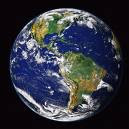WWF and other NGO, research and business partners have formated a Global Water Roundtable (GWRT) to develop global standards for freshwater stewardship. The new standard setting process, unveiled at the annual World Water Week gathering in Stockholm for water professionals from governments, businesses and NGOs, will operate under the umbrella of the Alliance for Water Stewardship of which WWF is an organising member.
"Water resources around the world are in a crisis and poor water management is a major factor," said Jason Clay, Senior Vice President for Market Transformation at WWF. "The Global Water Roundtable is a pragmatic, consensus-driven way to recognize those water users who are doing their best to lessen their water footprint."
The GWRT is modeled after similar standard-setting roundtables convened and facilitated by WWF that focused on 12 species produced from aquaculture and four global agricultural commodities (sugar, soy, palm oil and cotton).
The initiative is supported by a USD1 million grant from JohnsonDiversey, a global provider of commercial cleaning and hygiene solutions. The company is also a participant in the WWF Climate Savers programme, under which it has committed to substantial independently verified emissions reductions.
While the GWRT's initial focus will be on setting agreed standards for responsible environmental and social water use and accountability, the initiative could lead to certification processes recognising responsible water use.
The GWRT will consist of a series of meetings with stakeholders around the world, initially to develop an agreed set of standards covering water impacts, quality and management schemes.
Other organising members of the Alliance for Water Stewardship which will manage the process include World Wildlife Fund, the Pacific Institute, The Nature Conservancy, Water Witness International, The Water Stewardship Initiative, the Water Environment Federation and the European Water Partnership.
Source: Eropean Warter News







